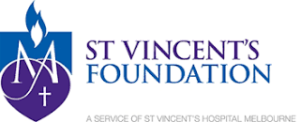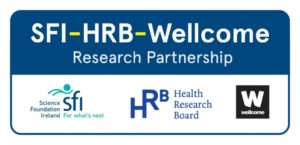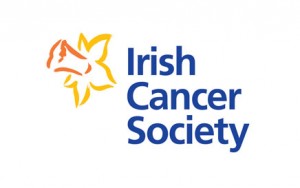
- Personalised Mapping of Tumour Evolution through Whole Genome Sequencing Analysis of Synchronous Colorectal Cancers
Funded by St. Vincent’s Foundation Cancer Fund.
Synchronous colorectal cancers (syCRCs) are multiple primary tumours developed simultaneously in a patient. Previous studies report high inter-tumour heterogeneity between syCRC, suggesting independent origins and different treatment response, making their management particularly challenging, with no specific guidelines currently in place. Using integrative Next Generation Sequencing approaches, we performed in-depth bioinformatic analyses on genomic and transcriptomic data of a total of eleven syCRCs and one metastatic CRC collected from three patients. We found mixed microsatellite status between and within patients. Overlap of mutations between synchronous tumours was consistently low (<0.5%) and heterogeneity of driver events across syCRCs was high in all patients (BRAF V600E being the only recurring MSI mutation). Microbial analysis revealed the presence of Fusobacterium nucleatum in patients with MSI tumours, while quantification of tumour immune infiltration showed similar abundances across all samples. Further tumour interpretation was achieved by molecular subtyping.
Results suggest high heterogeneity of syCRCs within patients but find clinically actionable biomarkers that help predict responses to currently available targeted therapies, highlighting the importance of personalised genome sequencing to aid therapy decision and improve precision cancer medicine of syCRCs.
- Whole Genome Sequencing of Mucinous rectal cancers.
Mucinous adenocarcinoma of the colon and rectum is a distinct histological subtype of colorectal cancer with a poorer prognosis when compared to non-mucinous adenocarcinoma. While there is some evidence regarding RAS, RAF and MSI status in mucinous tumours, further genomic data are limited. We are conducting Whole Genome Sequencing of Mucinous rectal cancers to understand tumour development in this subtype.
- Development of a method for clinical interpretation of cancer genome

Funded by The SFI-HRB-Wellcome Trust Biomedical Research Partnership.
In this project, I am investigating if somatic alterations in tumour genomes are informative for prognosis of cancer patients. The dramatic decreases in the cost of genome sequencing have enabled large-scale projects such as Genomics England and the International Cancer Genome Consortium (ICGC). Studies including The Cancer Genome Atlas (TCGA) and Pan-Cancer Analysis of Whole Genomes have identified the likely driver alterations in cohorts of cancer patients. However, the next major challenge in the field of cancer genomics is the clinical interpretation of these data for an individual cancer patient.
My proposal will develop a computational method to interpret and assign “oncogenomic scores” to cancer genomes – focusing on colorectal cancer (CRC) in the first instance. I will use this approach as a proof-of-principle to investigate how differences in patients’ tumour genomes are linked to survival in CRC. The current medical care of a CRC patient is based on the expected response of the “average” patient, or at best, the average patient of a CRC sub-category. In fact, only three markers (MSI status, BRAF, and KRAS mutation status) have been implemented in routine clinical practice. Therefore, innovative methods to utilise and summarise high-dimensional genomic data are required to facilitate the translation of oncogenomic data to the clinical arena.
Having developed the method I will test its effectiveness as a prognostication approach using two different cohorts of colorectal cancer patients for whom survival data are available. I will focus on treatment naïve stage II disease patients in order to identify the high-risk-of-recurrence population, in which current clinical and pathological data are poor predictors of recurrence risk.
- Personalised tracking of response to neoadjuvant chemoradiotherapy in locally advanced rectal cancer patients
One-third of all colorectal cancers (CRCs) are located in the rectum. The vast majority of rectal cancer patients present with locally advanced rectal cancer (LARC). The standard treatment for LARC is neoadjuvant chemoradiotherapy (NACRT), followed by surgical resection. However, >70% of patients do not achieve a complete pathological response and have high subsequent rates of relapse and death. Currently, there are no known prediction factors that determine response to NACRT based on variables such as gender, age, stage, and tumour location. Therefore, there is an urgent need to identify biomarkers to predict which patients are likely to respond to therapy. We are performing whole exome sequencing (WES), high-depth targeted sequencing, and RNA-sequencing of tumour samples collected from 33 patients prior to, during and after NACRT. Treatment response to NACRT for 26 patients is based on the Royal College of Pathologists tumour regression grading, and patients are classified as good (RCPath A; n=5), intermediate (RCPath B; n=11) or poor (RCPath C; n=10). The study will highlight the in-depth personalized medicine approaches required to survey tumour evolution and response to therapy in LARC.
- Identification of driver mutations and tumour evolution in HER2 positive breast cancer

Funding: Irish Cancer Society
This project analyses data from the TCHL (Trastuzumab, Carboplatin, and Docetaxel, with Lapatinib) clinical trial breast cancer whole exome sequencing project. Using a data processing pipeline based on the GATK (Genome Analysis Tool Kit) Best Practices Pipeline, variants will be called on a total of 34 tumour samples from 25 patients. This includes 20 patients where only a pre-treatment sample was taken from that patient, and 5 patients where samples were taken from multiple timepoints across the course of therapy. The whole exome sequencing data will be analysed for the presence of known or predicted driver mutations. The subclonal architecture and mutational signatures of the genomes of these samples will also be analysed. The genomic landscape of the samples taken from the same patient across multiple timepoints will be used to analyse the evolutionary history of the tumours in those patients and how they had evolved in response to therapy. The genomic landscape of samples from patients who showed complete response to therapy will be compared to the genomic landscape of patients who did not respond to therapy.